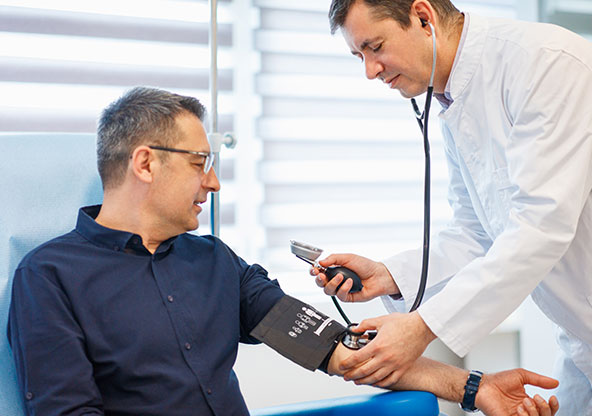4 Reasons Checkups Are Important For Your Health
1. Early Detection: Regular checkups can help detect potential health issues before they become more serious. By scheduling routine appointments, your doctor can monitor your health through routine services such as blood work and catch any problems before they become major issues. This is especially beneficial for those with chronic conditions that require ongoing management and monitoring.
2. Prevention: Primary care physicians have the expertise to identify and prevent potential health issues before they become serious. By scheduling regular checkups, your doctor can provide preventive care that can help you be aware of and protect yourself from potential medical conditions and problems.
3. Personalized Care: Primary care physicians build relationships with patients and provide personalized care. They take the time to listen to your concerns, learn your medical history, answer your questions, and work with you to develop a plan that fits your individual needs and goals.
4. Better Health Outcomes: Studies have shown that patients with a primary care physician have better health outcomes. These patients are more likely to receive preventive care, manage chronic conditions, and have lower rates of hospitalizations and emergency room visits.
By scheduling routine checkups and building a relationship with your primary care physician, you will be more aware of the status of your health, catch potential health issues early on, and ultimately, live a healthier life.
Routine Checkups: What to Expect
When it comes to our health, it's easy to get complacent and neglect the importance of regular checkups and preventive care. However, scheduling routine appointments and seeing a primary care physician can be the key to maintaining optimal health and catching potential health issues before they become serious. Here are a few ways primary care physicians help you manage your health.
Common Tests
At your routine appointment, you will likely get your vitals checked. This typically includes recording your temperature, blood pressure, heart rate, respiration rate, height, and weight. These factors are often used as indicators of your general health and can help your physician determine if further testing is needed.
Depending on your family’s medical history, your personal health history, lifestyle choices, and other risk factors, your doctor may want to run lab work or tests at your checkup. Some common tests include blood panels, thyroid checks, eye exams, depression screenings, and urinalysis. These test results are often the first indication if something needs attention or further testing.
Preventive Health Screenings
Your primary care doctor can also provide preventive screenings for various health conditions and diseases that are common in patients in your age range. These include screening for breast cancer or colon cancer, Pap tests, diabetes screening, sexually transmitted infections, and more. If your primary care doctor is aware of your family medical history and your personal health history, they can advise you on what health screenings are recommended at your age and with your risk factors.
A Healthier Life
A checkup appointment can catch the first signs of any unforeseen health issues and skipping it may allow issues to develop or worsen before you can receive treatment.
Studies have shown that patients with a primary care physician have better health outcomes. They are more likely to receive preventive care, manage chronic conditions, and have lower rates of hospitalizations and emergency room visits.
The importance of regular checkups cannot be underestimated. Primary care physicians can provide comprehensive preventive services tailored to each patient's needs. They help diagnose illness in its earliest stages and provide personalized treatment plans to help you stay healthy and enjoy a better quality of life. Taking the time to schedule regular checkups with your doctor will ultimately save you both time and money in the long run.
By prioritizing routine checkups with your primary care physician, you are prioritizing a healthier life.
It's never too late to start taking care of yourself, so take the first step today and make an appointment with a primary care physician. You'll be glad you did!


